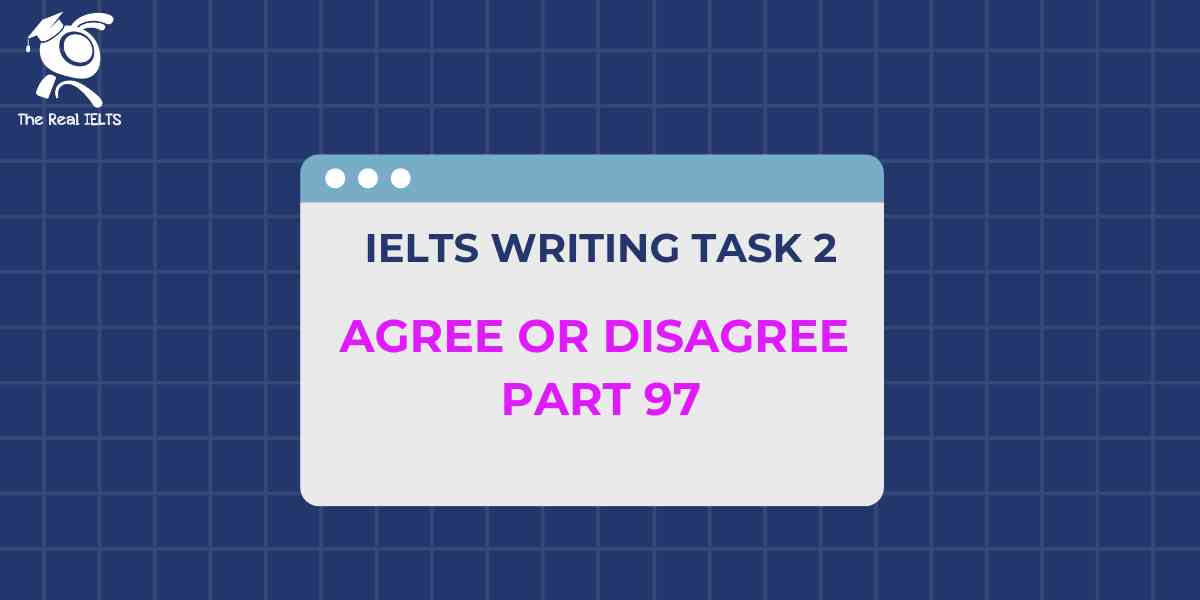Đề thi IELTS Reading có tiêu đề “The Role of Non-Governmental Organizations in Development”
Nhớ đọc thêm các bài luyện thi IELTS nhé.
IELTS Reading:”The Role of Non-Governmental Organizations in Development“
The Role of Non-Governmental Organizations in Development
Non-Governmental Organizations (NGOs) play a pivotal role in the socio-economic development of nations, particularly in developing countries. These organizations, which operate independently from governmental control, focus on a wide range of issues such as education, health, environmental conservation, human rights, and poverty alleviation. Their involvement in development has grown significantly over the past few decades, filling gaps where government initiatives may be lacking or slow to respond. This essay explores the various ways in which NGOs contribute to development, the challenges they face, and the impact of their work on global development.
One of the primary contributions of NGOs to development is in the area of education. NGOs often operate in remote or underserved areas where government resources are limited. By establishing schools, providing educational materials, and training teachers, NGOs help improve literacy rates and educational outcomes. For instance, organizations like Save the Children and UNICEF have been instrumental in providing education to children in conflict zones and areas affected by natural disasters. These initiatives not only provide immediate relief but also contribute to long-term development by empowering individuals with the knowledge and skills necessary to improve their livelihoods.
In addition to education, NGOs are heavily involved in health care services, particularly in regions where access to medical facilities is limited. They provide essential health services, including vaccinations, maternal and child care, and disease prevention programs. NGOs like Médecins Sans Frontières (Doctors Without Borders) and the Red Cross have made significant contributions in this area, offering medical care in war-torn regions and during epidemics. Their work not only saves lives but also helps to build more resilient health systems in the long term.
Environmental conservation is another critical area where NGOs have made a significant impact. Organizations like Greenpeace and the World Wildlife Fund (WWF) work tirelessly to protect endangered species, preserve natural habitats, and combat climate change. Through advocacy, research, and on-the-ground conservation efforts, these NGOs have raised global awareness about environmental issues and influenced policy changes at the national and international levels. Their work is essential for sustainable development, as it ensures that natural resources are preserved for future generations.
Human rights advocacy is another crucial aspect of NGO work. Many NGOs focus on protecting the rights of marginalized groups, including women, children, refugees, and ethnic minorities. They provide legal assistance, advocate for policy changes, and raise awareness about human rights violations. Organizations like Amnesty International and Human Rights Watch have been at the forefront of this movement, bringing attention to human rights abuses and pressuring governments to take action. By promoting justice and equality, these NGOs contribute to social stability and development.
Despite their significant contributions, NGOs face numerous challenges that can hinder their effectiveness. One of the primary challenges is funding. NGOs often rely on donations, grants, and fundraising efforts to finance their operations. However, funding can be inconsistent, particularly during economic downturns or when donor priorities shift. This can lead to difficulties in sustaining long-term projects and responding to emerging needs. Additionally, NGOs may face resistance from governments, particularly in countries where their work is perceived as a threat to political stability or where there is a lack of understanding of their role.
Another challenge is the coordination and collaboration between NGOs and other stakeholders, including governments, international organizations, and local communities. While NGOs often work independently, their efforts can be more effective when coordinated with other development initiatives. However, achieving this coordination can be difficult due to differences in priorities, approaches, and levels of influence. Moreover, the increasing number of NGOs working in certain regions can lead to duplication of efforts and competition for resources.
The impact of NGOs on global development cannot be overstated. Their work has led to significant improvements in education, health, environmental conservation, and human rights. Moreover, NGOs have played a critical role in raising awareness about global issues, influencing policy changes, and mobilizing resources for development initiatives. Their ability to operate independently from government control allows them to address issues that may be overlooked or underfunded by the public sector.
In conclusion, NGOs are indispensable players in the field of development. Their contributions to education, health, environmental conservation, and human rights have had a profound impact on the lives of millions of people around the world. However, to maximize their effectiveness, NGOs must overcome challenges related to funding, coordination, and collaboration. By continuing to innovate, adapt, and work in partnership with other stakeholders, NGOs can continue to play a vital role in advancing global development.
Đề bài thi IELTS Reading
Multiple Choice (Câu hỏi trắc nghiệm)
- What is one of the main roles of NGOs in developing countries?
- A. Promoting tourism
- B. Providing education
- C. Encouraging trade
- D. Regulating markets
- Which area is NOT mentioned as a focus of NGOs?
- A. Health care
- B. Military defense
- C. Environmental conservation
- D. Human rights
- How do NGOs typically operate in remote areas?
- A. By replacing government services
- B. By working independently without any collaboration
- C. By establishing schools and training teachers
- D. By setting up large businesses
- What challenge do NGOs face when it comes to funding?
- A. Over-reliance on government grants
- B. Inconsistent donations
- C. Excessive funding from international organizations
- D. High operational costs
- What is the impact of NGOs on global awareness?
- A. They only influence local communities.
- B. They have little to no impact.
- C. They help raise awareness about global issues.
- D. They primarily focus on political issues.
- What is a benefit of NGOs working independently from government control?
- A. They can operate without any regulations.
- B. They can address overlooked or underfunded issues.
- C. They can avoid competition with other NGOs.
- D. They can increase their profits.
- Which of the following NGOs is known for providing education in conflict zones?
- A. World Wildlife Fund (WWF)
- B. Médecins Sans Frontières
- C. Save the Children
- D. Greenpeace
- What is a key contribution of NGOs in health care?
- A. Building hospitals in urban areas
- B. Providing vaccinations and maternal care
- C. Training doctors for private practices
- D. Developing new medical technologies
- How do NGOs contribute to environmental conservation?
- A. By advocating for governmental control over resources
- B. By focusing on industrial development
- C. By protecting endangered species and natural habitats
- D. By promoting fossil fuel usage
- What is one of the challenges NGOs face in coordination and collaboration?
- A. Lack of trained personnel
- B. High competition for resources
- C. Differences in priorities and approaches
- D. Inflexibility in project planning
True/False/Not Given (Đúng/Sai/Không được đề cập)
- NGOs have replaced government initiatives in most developing countries.
- True
- False
- Not Given
- NGOs often work in regions where access to education is abundant.
- True
- False
- Not Given
- All NGOs operate with full governmental support.
- True
- False
- Not Given
- NGOs face challenges related to inconsistent funding.
- True
- False
- Not Given
- NGOs are only focused on short-term relief efforts.
- True
- False
- Not Given
Yes/No/Not Given (Có/Không/Không được đề cập)
- NGOs are essential in areas where government responses are slow.
- Yes
- No
- Not Given
- The author believes that NGOs should be more regulated by governments.
- Yes
- No
- Not Given
- NGOs have had no significant impact on global policy changes.
- Yes
- No
- Not Given
- The author suggests that NGOs should avoid collaboration with governments.
- Yes
- No
- Not Given
- The author thinks that NGOs have a minor role in sustainable development.
- Yes
- No
- Not Given
Matching Information (Nối thông tin)
- Match the following organizations with their focus areas:
- A. Save the Children
- B. Médecins Sans Frontières
- C. Greenpeace
- D. Amnesty International
ii. Health care in war zones
iii. Education in conflict areas
iv. Human rights advocacy - Match the challenges faced by NGOs with their descriptions:
- A. Funding challenges
- B. Coordination challenges
- C. Government resistance
- D. Duplication of efforts
ii. Overlapping projects by different NGOs
iii. Opposition from political authorities
iv. Difficulty aligning with other stakeholders
Matching Headings (Nối tiêu đề với đoạn văn)
- Match the following headings to the correct paragraphs:
- A. “The Role of NGOs in Education”
- B. “Challenges Faced by NGOs”
- C. “NGOs and Environmental Conservation”
- D. “Impact of NGOs on Global Development”
Matching Features (Nối đặc điểm)
- Match the following contributions to their respective areas:
- A. Improving literacy rates
- B. Providing vaccinations
- C. Protecting endangered species
- D. Promoting human rights
ii. Health care
iii. Environmental conservation
iv. Human rights
Matching Sentence Endings (Nối phần kết câu)
- Complete the sentences by matching the beginnings with the correct endings:
- A. NGOs play a vital role in…
- B. One challenge NGOs face is…
- C. NGOs contribute to sustainable development by…
- D. The impact of NGOs is significant because…
ii. providing essential health services.
iii. inconsistent funding.
iv. operating independently from governments.
Sentence Completion (Hoàn thành câu)
- NGOs often operate in _______ areas where government resources are limited.
- One of the primary contributions of NGOs is in the area of _______.
- NGOs provide essential health services, including _______ and disease prevention programs.
- Through advocacy, research, and on-the-ground efforts, NGOs help protect _______.
- NGOs face difficulties in coordination due to differences in _______ and approaches.
Summary Completion (Tóm tắt hoàn thành)
- NGOs play a crucial role in development by addressing issues such as _______ and _______. They operate in areas where government efforts may be lacking and provide essential services in education, health care, and environmental conservation. However, NGOs also face challenges such as _______ and the need for better coordination with other stakeholders.
Short Answer Questions (Câu hỏi trả lời ngắn)
- What are two primary areas of focus for NGOs mentioned in the passage?
- Name an NGO that provides education in conflict zones.
- What challenge is associated with funding for NGOs?
- How do NGOs contribute to environmental conservation?
- Which NGO is known for its work in human rights advocacy?
Diagram Label Completion (Hoàn thành nhãn của sơ đồ)
- Label the diagram below with the areas of focus for NGOs:
- Education
- Health care
- Environmental conservation
- Human rights
Table Completion (Hoàn thành bảng)
- Complete the table with the contributions of NGOs:Focus AreaNGO ContributionEducationImproving literacy ratesHealth careEnvironmental conservationHuman rights
Flow-chart Completion (Hoàn thành biểu đồ dòng chảy)
- Complete the flow-chart showing the impact of NGOs on global development:
- NGOs provide essential services in _______ → NGOs raise awareness about _______ → NGOs influence _______ and _______.
Short Answer Questions (Câu hỏi trả lời ngắn)
- What is the overall impact of NGOs on global development according to the passage?
Đáp án bài thi IELTS Reading
Multiple Choice (Câu hỏi trắc nghiệm)
- B. Providing education
- B. Military defense
- C. By establishing schools and training teachers
- B. Inconsistent donations
- C. They help raise awareness about global issues.
- B. They can address overlooked or underfunded issues.
- C. Save the Children
- B. Providing vaccinations and maternal care
- C. By protecting endangered species and natural habitats
- C. Differences in priorities and approaches
True/False/Not Given (Đúng/Sai/Không được đề cập)
- False
- False
- False
- True
- False
Yes/No/Not Given (Có/Không/Không được đề cập)
- Yes
- Not Given
- No
- No
- No
Matching Information (Nối thông tin)
- A. iii. Education in conflict areas
- B. ii. Health care in war zones
- C. i. Environmental conservation
- D. iv. Human rights advocacy
- A. i. Inconsistent donations and grants
- B. iv. Difficulty aligning with other stakeholders
- C. iii. Opposition from political authorities
- D. ii. Overlapping projects by different NGOs
Matching Headings (Nối tiêu đề với đoạn văn)
- A. “The Role of NGOs in Education” (Paragraph on education)
- B. “Challenges Faced by NGOs” (Paragraph on challenges)
- C. “NGOs and Environmental Conservation” (Paragraph on environmental conservation)
- D. “Impact of NGOs on Global Development” (Paragraph on impact)
Matching Features (Nối đặc điểm)
- A. i. Education
- B. ii. Health care
- C. iii. Environmental conservation
- D. iv. Human rights
Matching Sentence Endings (Nối phần kết câu)
- A. NGOs play a vital role in… ii. providing essential health services.
- B. One challenge NGOs face is… iii. inconsistent funding.
- C. NGOs contribute to sustainable development by… iv. operating independently from governments.
- D. The impact of NGOs is significant because… i. promoting justice and equality.
Sentence Completion (Hoàn thành câu)
- remote
- education
- vaccinations
- endangered species
- priorities
Summary Completion (Tóm tắt hoàn thành)
- education, health care, inconsistent funding
Short Answer Questions (Câu hỏi trả lời ngắn)
- Education and health care
- Save the Children
- Inconsistent funding
- By protecting endangered species and natural habitats
- Amnesty International
Diagram Label Completion (Hoàn thành nhãn của sơ đồ)
- Education
- Health care
- Environmental conservation
- Human rights
Table Completion (Câu 38 – Hoàn thành bảng)
| Focus Area | NGO Contribution |
|---|---|
| Education | Improving literacy rates |
| Health care | Providing vaccinations and maternal care |
| Environmental conservation | Protecting endangered species |
| Human rights | Promoting justice and equality |
Flow-chart Completion (Câu 39 – Hoàn thành biểu đồ dòng chảy)
- NGOs provide essential services in education, health care → NGOs raise awareness about global issues → NGOs influence policy changes and resource mobilization.
Short Answer Questions (Câu hỏi trả lời ngắn)
- NGOs have a significant impact on global development by improving education, health care, environmental conservation, and human rights, as well as influencing policy changes and raising global awareness about important issues.
Luyện tập bài khác ở bài viết:”100 bài luyện IELTS Reading 2024 – 2025“















